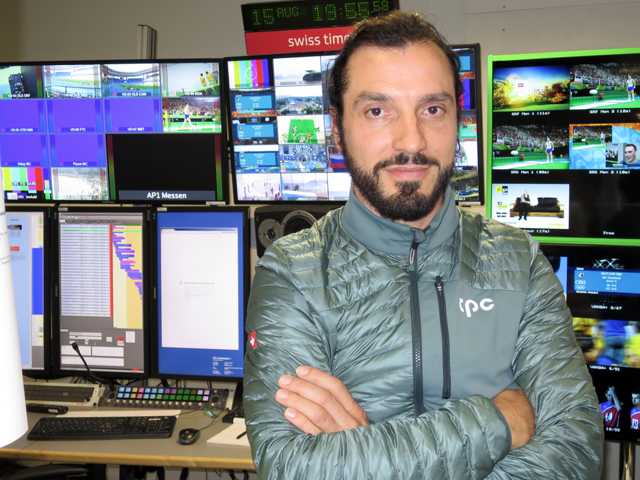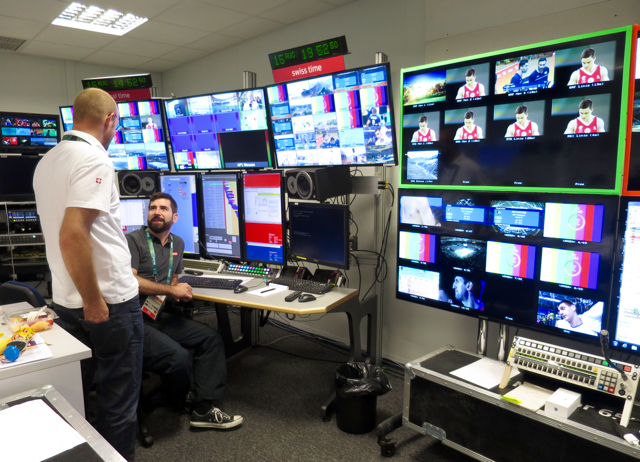Live From Rio 2016: SRG SSR Takes Remote Production From Switzerland to New Level
Switzerland’s SRG SSR, the joint central production and broadcasting association for the nation, is using the 2016 Rio Olympics to take its remote-production efforts to another level from the 2014 Sochi Olympics. In 2014, an SRG SSR team controlled studio cameras in Olympic Park from the International Broadcast Center (IBC). For this Games, two studios are located at Ipanema Beach, and control of those cameras is handled in control rooms in Geneva, Lugano, and Zurich.
“We do the remote production using conventional signals, not really IP-based, as we are waiting on an IP standard,” says Toni Milanese, technical manager, major events, Sport Business Unit, SRG SSR. “We also want to see the workflows, not just technical but for the editorial people.”

SRG SSR’s Toni Milanese, who oversees Olympic technical operations for three Swiss TV channels, says the broadcaster is controlling studio operations from three locations in Switzerland.
SRG SSR has a complex situation back home: its viewers, depending on where they live, speak predominantly German, French, or Italian. As a result the broadcaster has a regional channel operation in each of the three languages (Geneva in French, Lugano in Italian, and Zurich in German). At the Olympics, the three channels cut their own shows, to best meet the needs of viewers in their region.
SRG SSR has a Net Insight Nimbra node at the Ipanema location, which has one studio for the German-language channel and a second shared by the Italian- and French-language channels.
“It can get tricky to switch one studio for two channels,” notes Milanese, “but, yesterday, we were able to switch it over from Lugano to Geneva in two or three minutes.”
All signal-control management is through a BFE Studio and Media System that can switch the video and audio router with one switch.
Swiss Broadcasting also has a presence at five mixed zones, some of which are shared with ORF, the Austrian national broadcaster. In fact, the two channels help each other out, sharing the same studio location and some camera feeds, and Swiss Broadcasting helps get ORF’s camera signals back from Ipanema to the IBC in Barra.

A production team of 35 people oversees the IBC operations for SRG SSR.
The total team on hand for Swiss Broadcasting numbers 141, with 35 staffers on the technical side. The OBS Multichannel Distribution Service (MDS) is received in Switzerland via satellite, with the team in Brazil switching commentaries and ensuring that the right audio signals make their way to Switzerland. MADI is used to send audio via the Net Insight Nimbra JPEG2K encoder, and the teams back home embed the commentary with the MDS signals.
There are also seven off-tube rooms at the IBC as well as radio facilities and six Sony Sonaps nonlinear editing systems, which are used more for creating content for the news side of the operation.
“The Olympics is a good platform to try and do some new stuff,” says Milanese. “The approach we have here makes sense for a long-term event like the Olympics.”

